There’s good research showing the benefits of kids and parents reading together. Scholastic’s seventh edition of Kids And Family Reading Report builds on the theme for kids and parents reading together beyond the early years. Alarmingly, the research shows a rapid decline after a child turns 9.
The infographic, contained within Scholastic’s 2017 report, shows the heartening fact that older children actually like parents reading to them. So the issue is how might busy parents do so, without it adding to the pressures of the working week. As a working mother, I know how relieved I felt when my children could read books for themselves.
In this article, we argue, that it comes down to sharing a love of reading with your children. For that to happen, what, when and how that will take place needs to somehow also continue to foster their independent reading skills. So let’s outline a little more about the inevitable issues that can arise.
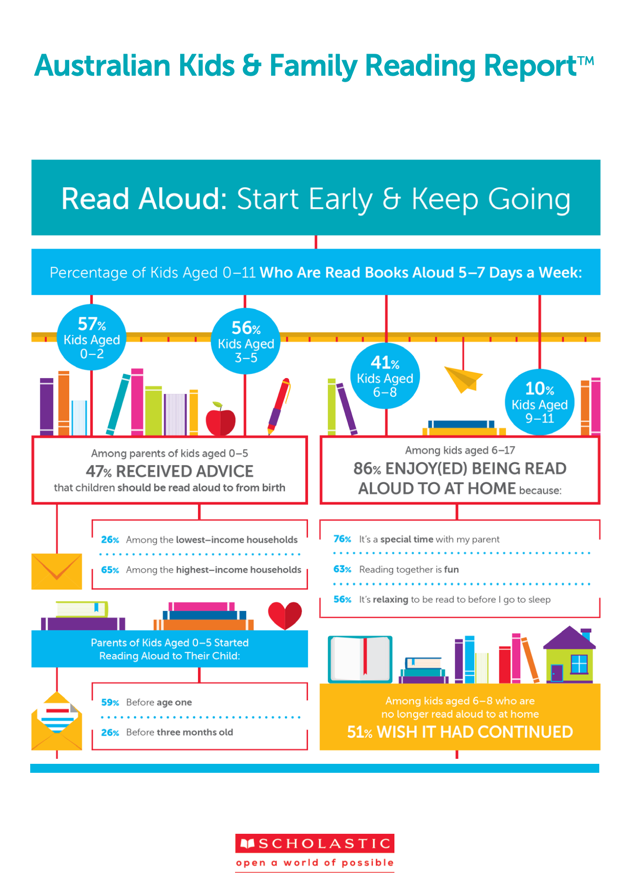
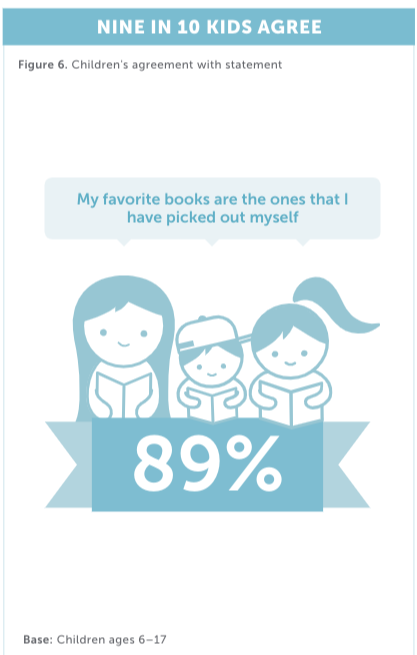
1. kids and parents Reading choices
As the Scholastic report also shows, children are far more motivated to read when they choose the stories and genres they read. The way we manage questions of choice with children can be contentious. What’s more, our choices show up our deeply held values and beliefs which, in turn, we model to them.
In any case, figuring out what book to read isn’t easy. Historically, just think of the child in Marcus Zusak novel, The Book Thief. She brilliantly shows how the book-burning years of Nazi Germany stood alongside her curiosity in reading books.
An extreme case, I know, but a good one to highlight the unequal knowledge and power that can exist between children and adults in their choice of literary works.
2. kids and parents reading together as homework
Recently, I watched Year 5/6 teachers at Wooranna School Primary School working with their upper primary school students to choose novels to read in their ‘Literature Circles’. The steps they took was inspiring to watch as they addressed both choice and personal responsibility. The routine ran as follows:
- The Year 5/6 teaching team leader, Jennie Vine, created a shortlist of novels with the five teaching team members from which each teacher selected a novel to promote to students.
- A forum was held in which the five teachers ‘sold’ their choice of novel to students by describing their own engagement with the book, what it evoked for them and how its themes resonated with their experience;
- Students then select which book they would study, essentially selecting the theme and reading experience that they believe they would most enjoy.
On reflection, it’s a method which parents can learn a lot from regarding how to look to trusted sources, listen to word-of-mouth recommendations and choose from a selection of novels to read.
What can you do to collect books which represent a common choice? And once a selection is made, how will you share them to decide which ones to read aloud? The point is to do enough so that parents neither take over the responsibility of reading for older children but children get what they need in hearing their parents engage in a pleasurable way with books with them.
3. kids love books that make them laugh
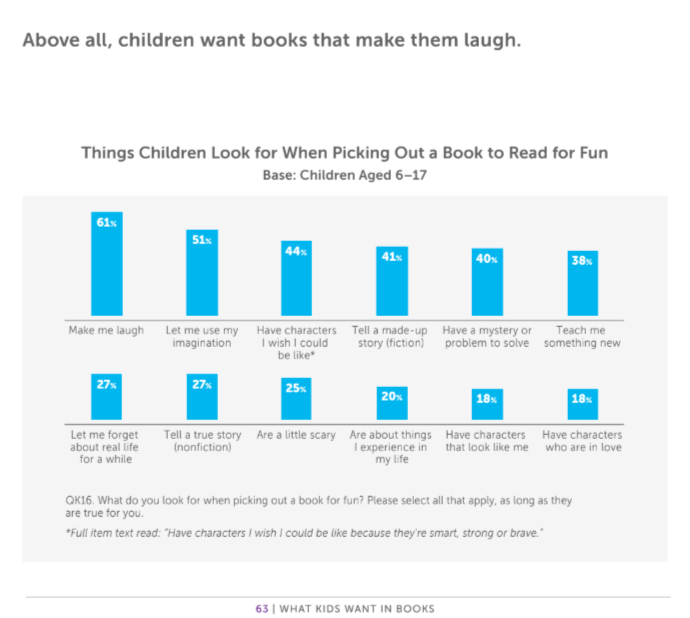
It is interesting to read in the 2017 Scholastic Kids and Family Reading Report that one of the top factors for reading for fun is picking out books that make children laugh. That is an interesting indicator which deserves to be investigated in its own right.
By coincidence, the Young Philosophers Series by author Clare-Rose and illustrator Yong Ho Moon are small books all written in a comic style. Read all about them here.
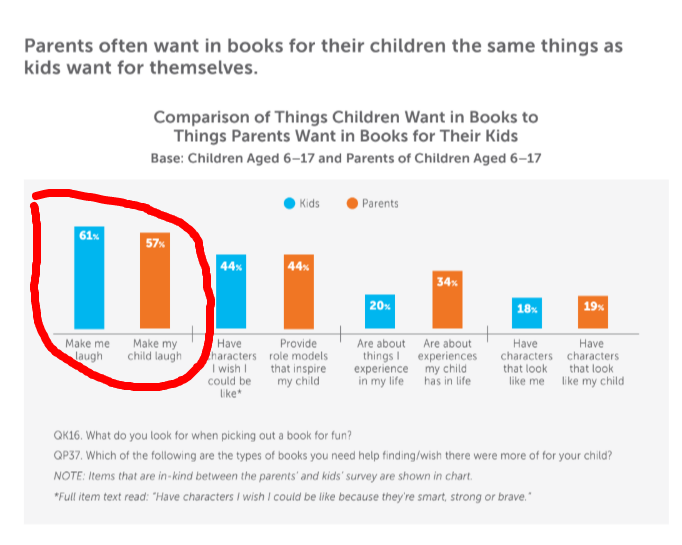
The report also lists how parents feel very similarly to children about their reading choices. As one mother says, “I would rather him happily read something funny and engaging than have to force him to read something he just doesn’t want to. Funny books grab you right at the start.” —Mother, 12-year-old boy, New South Wales – Metro
4. Kids and parents read comic books together
A comic approach is a delightful mask for facing up to serious considerations, sometimes even sacred ones. Take, for instance, the idea that aliens were the origins of life on earth. There have been speculations about the subject for years. The third book of the Young Philosophers Series takes it up to explain how we might have such a bad environmental record. Could it be because we originated from aliens who were environmental vandals? The story is far fetched but is out to make a point.
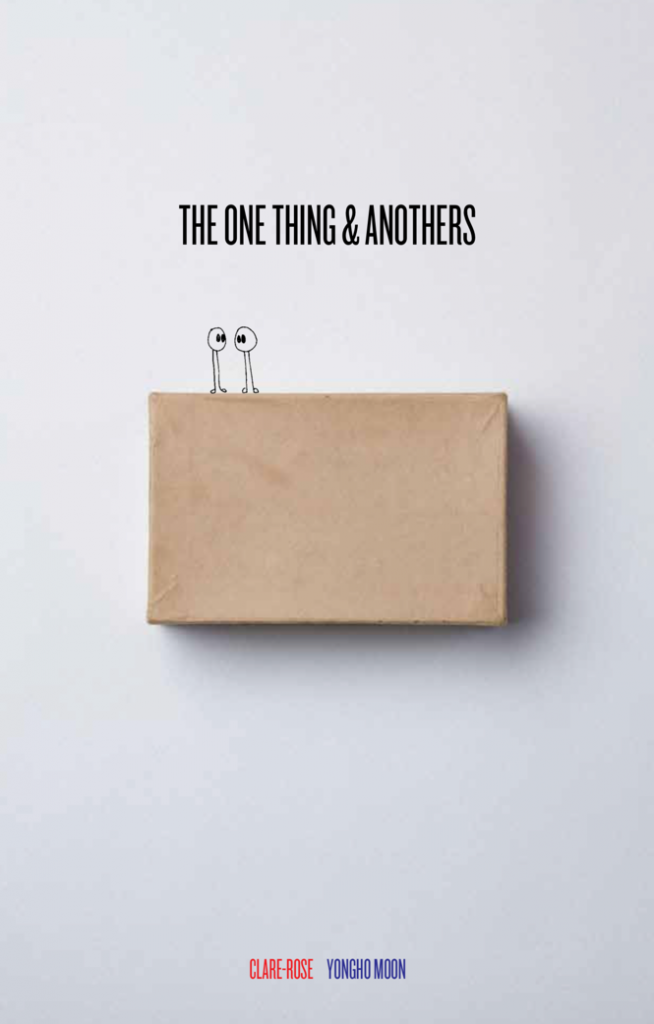
Clare explains
A reimagining of the story of how earthlings came to be. A celebration of our own hypocrisies, that we are both one thing and another at the same time. We create and we destroy. We love and we hate. We remember and we forget. We shine, we fade. The kids are encouraged to finish the book with their own chapter on what happens to these beautiful creatures.
The books have called up some big questions philosophically. They ask the children to write the final chapter.
Be the first to read our fun books
A small independent publisher like ours can offer parents early access to titles before making them generally available.